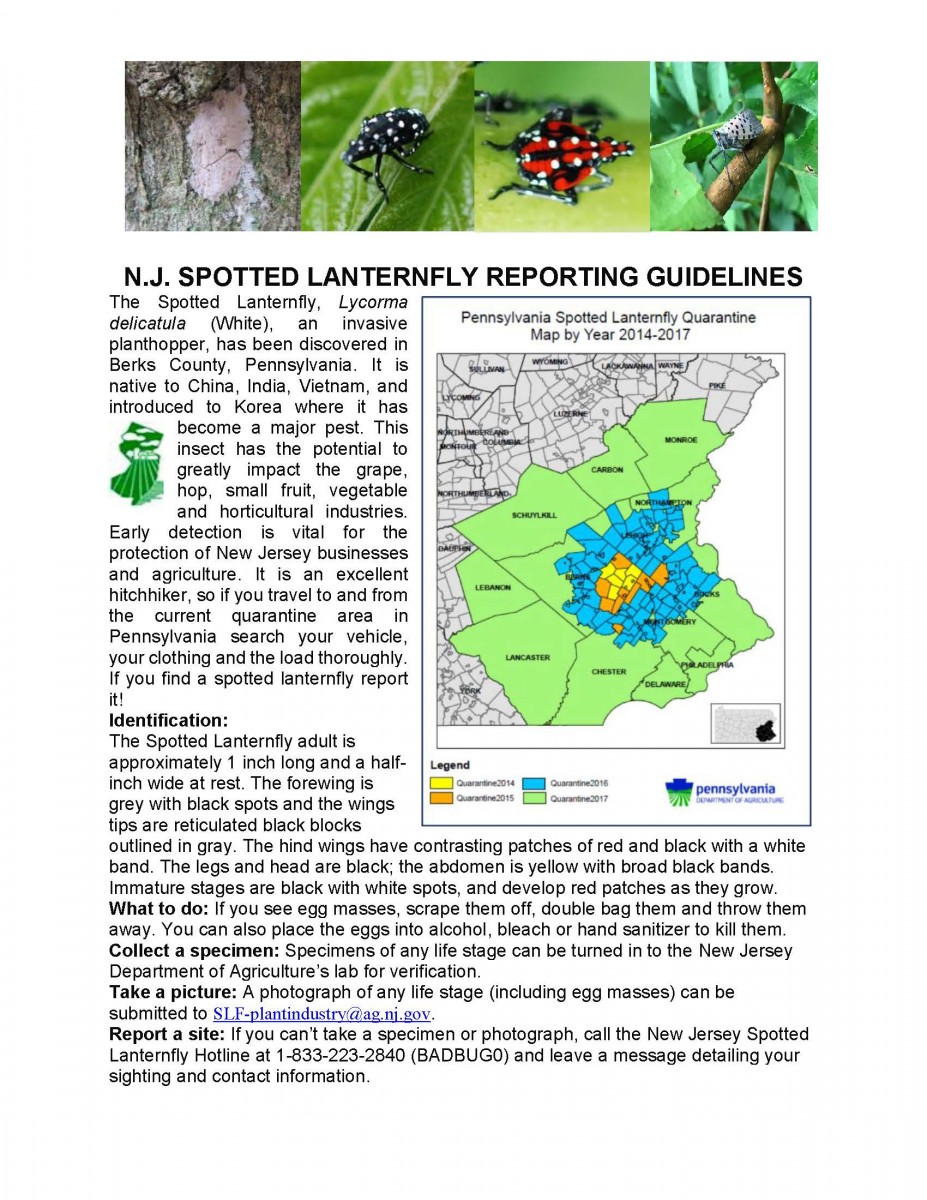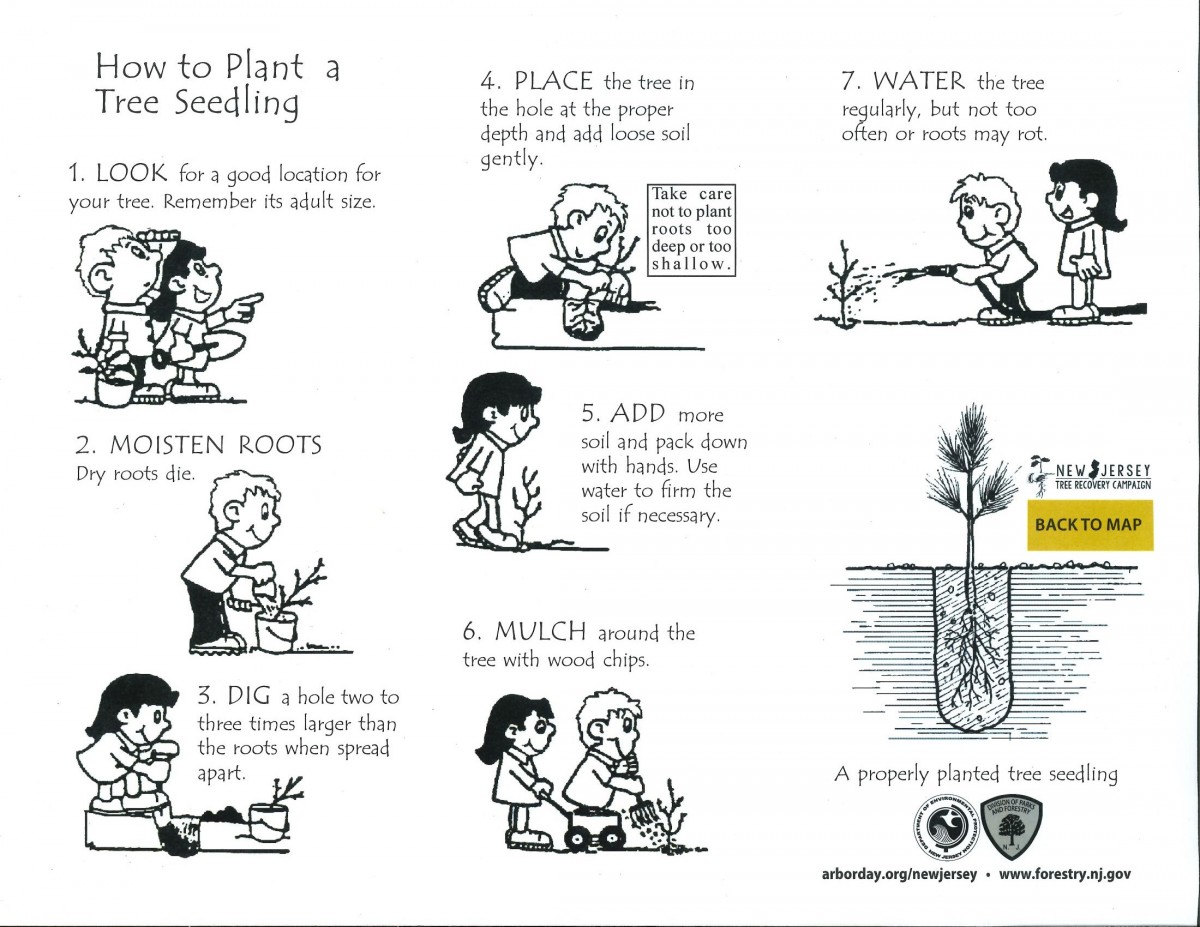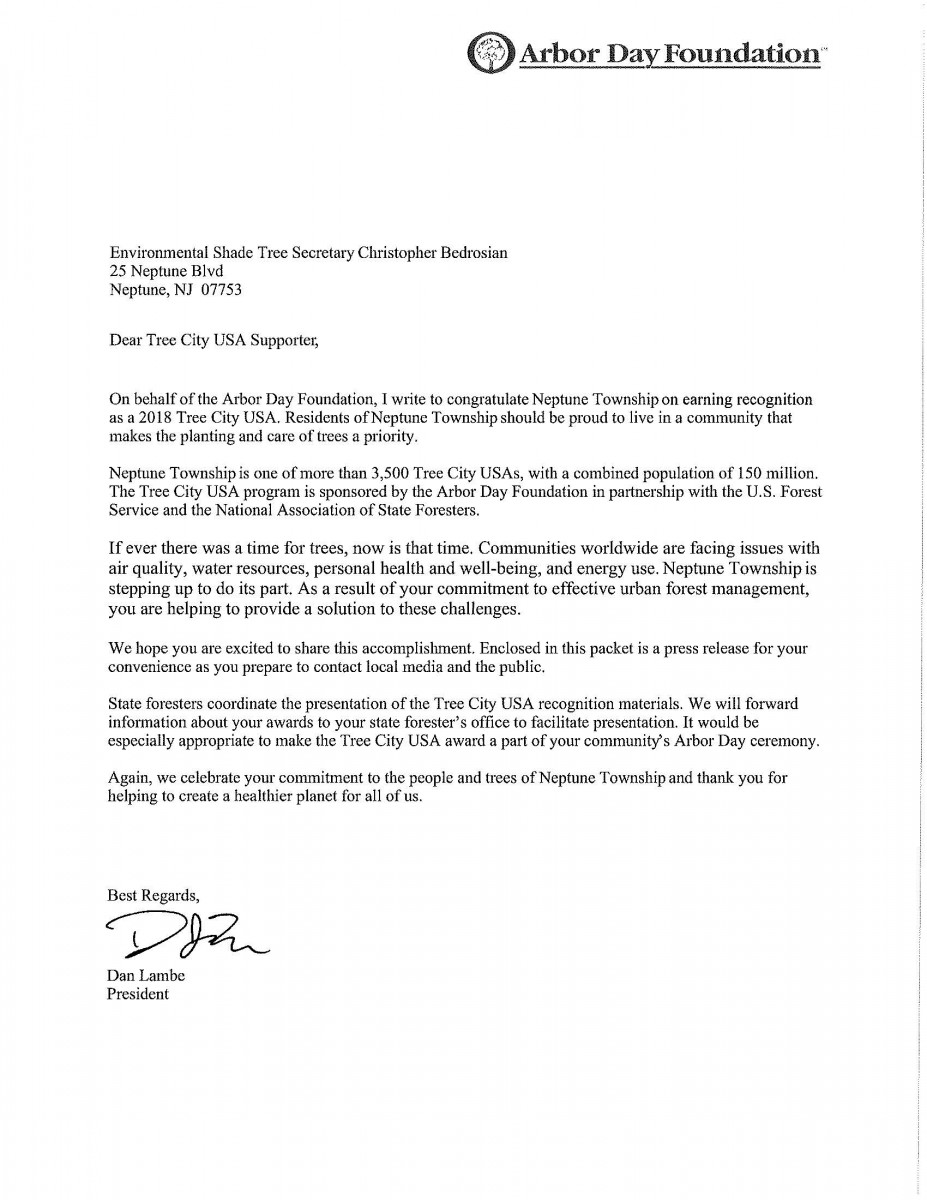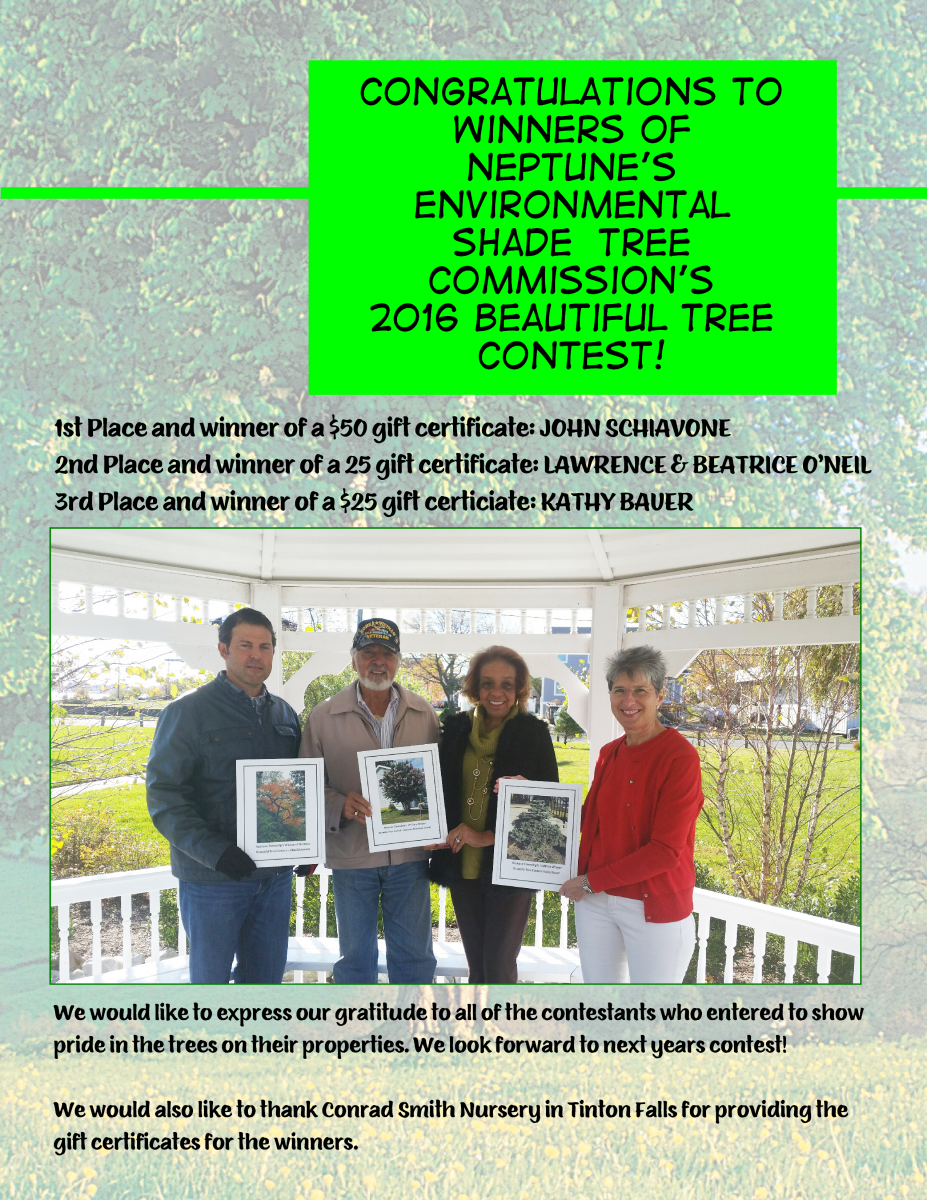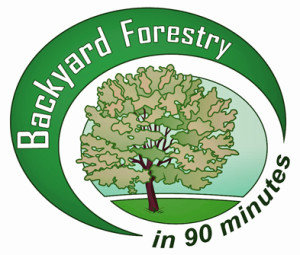2026 Environmental/Shade tree commission monthly meeting dates take place on the second Wednesday of every month.
2024 Tree Planting
Please CLICK HERE to view our recent video where we planted new trees.
2023 Free Tree Giveaway
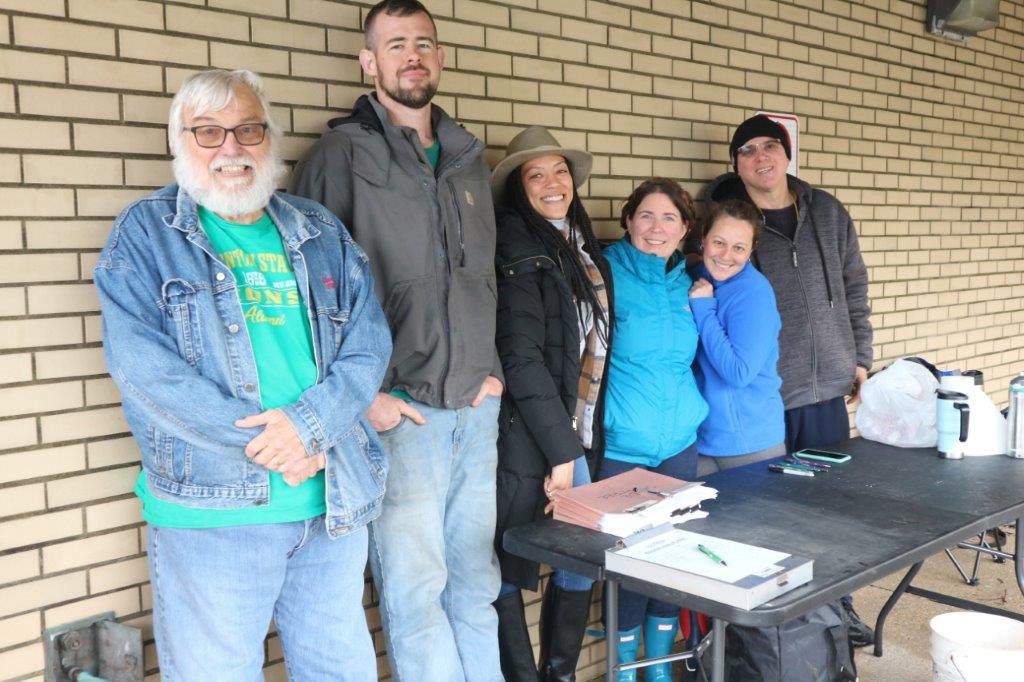
“To be without trees would, in the most literal way, to be without our roots.” ― Richard Mabey
The Neptune Township’s Environmental & Shade Tree Commission (ESTC) started off the year with our 2023 free seedlings and bare root tree giveaway.
Despite the clouds and rain on April 29th, our volunteer members were at the Neptune Township Public Library giving out trees and flower/vegetable seed packets to our local and neighboring residents. This was a great way to promote Arbor Day and literally establish “roots” in the community. The free seed packets were also a great way to promote gardening and habitats for our beneficial insects, bees, butterflies, and birds.
Some of the tree species that we had this year included thirty Redbuds, twenty-five Chestnut Oaks, fifty Bur Oaks, twenty-five Black Walnuts, and thirty Northern Red Oaks. And the best part…all trees were given away! We cannot thank enough the residents for coming out to support this cause. As ESTC members, we enjoy hearing from Neptune residents who revisit each year to let us know how their bare root trees are doing from the 2022 and earlier tree giveaways.
The ESTC continues to look forward to new projects that benefit our environment and our residents. We are currently working on our rain gardens located at the Township’s Arboretum and across the street from the Jumping Brook baseball fields. Check in later this year to see how these areas have been improved.
Have ideas to make our Township even more environmentally sound? Please join us at our meetings.
Please CLICK HERE to view all photos from the day!
The Environmental/Shade Tree Commission (ESTC) has worked throughout 2021 and 2022 to establish a rain garden at our Arboretum located at the intersection of Heck Ave and Doremus Way. A rain garden facilitates stormwater drainage management by reducing ponding along the streets and allowing run-off to infiltrate onto vegetated areas in the Arboretum. The gravel areas allow the excess water to naturally percolate into our groundwater system, and is a great example of water conservation and pollution control. Part of the rain garden design included planting of native species such as ironweed, asters, goldenrod, blue flag iris, milkweed, black-eyed susan, and tussock sedge. This provides habitat creation for pollinators like birds, native bees, and butterflies.
Despite the 2022 setbacks of a long winter season and blazing heat wave/drought from the summer, the rain garden was excavated, graded with stone and topsoil, planted with various native species, weeded, and mulched. This project would not have been a success without the $1,000 grant from the Association of New Jersey Environmental Commissions (ANJEC). With ANJEC’s grant support, the ESTC was able to complete this project by the end of 2022. The Commission would also like to thank the Neptune Township Department of Public Works for being a key stakeholder in helping us establish the rain garden.
The photos below show the progression of the rain garden installation. We are now looking forward to Spring 2023 to see how well the plants established and look forward to providing our community an update on this rain garden’s full progression. The ESTC is also looking forward to sharing updates on two additional rain gardens that are being restored and re-planted at the baseball field park located on Jumping Brook Road. For more information on how you can install a rain garden on your private property or on how you can take steps towards improving your local ecosystem, visit ANJEC’s website at https://anjec.org for more information.
“The creation of a thousand forests is in one acorn.” ~ Ralph Waldo Emerson
The Neptune Township’s Environmental/Shade Tree Commission continued with their stewardship throughout 2022 in providing information on trees, giving away free seedlings, and planting more trees in our Neptune Township properties.
On April 23, 2022, our volunteer members were at the Neptune Township Public Library were not giving out acorns but we were giving out free bare root tree seedlings. Some of the tree species provided included tulip popular, black gum, northern red oak, dogwood, and more. We also had an opportunity to give away free vegetable and flower seed packets. This event was a great opportunity for our Neptune residents to contribute to the green canopy within our Township by planting these trees and creating their own vegetable gardens.
What happens to the leftover bare root seedings? Our volunteers care for them until they are ready to be planted in the Township’s Arboretum located at Heck Ave and Doremus Way. Our volunteers will be planting the extra seedlings in the Spring of 2023 to ensure they take root and provide more beauty and shade to our community.
In continuance of keeping our rank as a Tree City of USA by the Arbor Day Foundation, our Shade Tree volunteers took time to plant 3 Red Oak, 2 Red Maples, and 2 Swamp Oaks at Sunshine Park on October 22. Come spring, take a walk around Sunshine Park and enjoy our very own version of a “thousand trees”!
The Commission continues to look towards new projects that benefit our environment and our residents. We are working on additional rain gardens throughout the Township and future planting of wildflowers to attract birds and pollinators. Stay tuned to our Facebook page and the website for new updates!
Have ideas to make our Township even more environmentally sound? Please join us at our meetings.
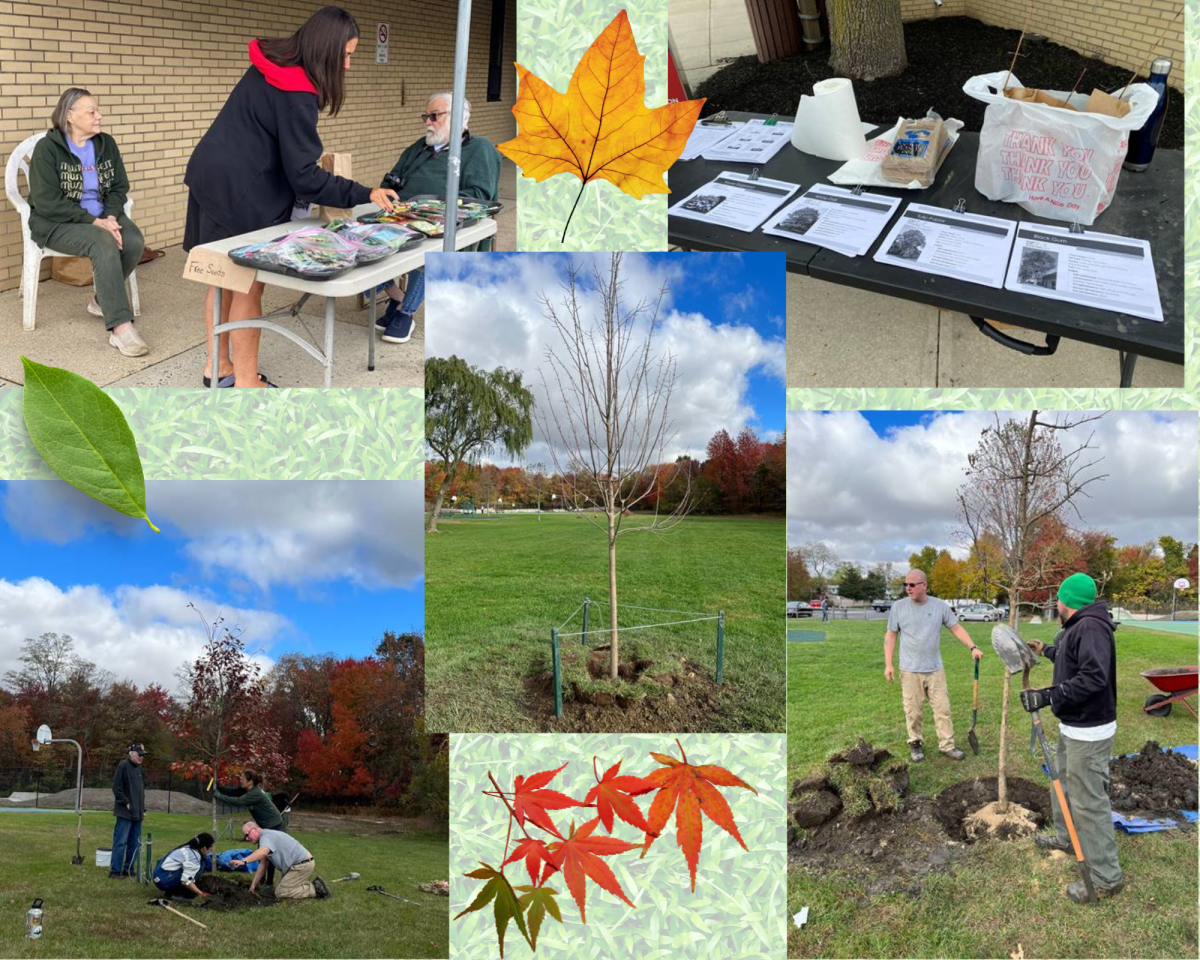
2021 Do Not Plant List
Please CLICK HERE to view a list of plants & or trees listed on the “Do Not Plant” list for this year.
Community Forestry Management Plan
“The best time to plant a tree was 20 years ago. The second best time is now.”
- Chinese proverb
“He who plants a tree, plants a hope.”
- Lucy Larcom
Neptune Township’s Environmental/Shade Tree Commission continues with their stewardship throughout 2021 in providing information on trees, giving away free seedlings, and planting more trees in our Neptune Township properties.
On April 24, 2021, our volunteer members were at the Neptune Township Public Library giving out free bare root tree seedlings. Some of the tree species provided included arrowwood, bayberry, beach plum, black gum, northern red oak, red maple, white pine, and more. This event is a great opportunity for our Neptune residents to contribute to the green canopy within our Township by planting these trees and bushes on their properties. It not only provides benefits to our environment but also gives residents a chance to watch these trees grow and provide shade, beauty, and sense of giving back.
If you were curious as to what happens to the leftover bare root seedings, take a peek at the Neptune Township Arboretum next to the Public Works Yard on Heck Avenue. Our volunteers planted the extra trees in hopes that others will get to enjoy the beauty and shade these trees will provide in the future.
Part of our Township’s effort, to continue to be ranked as a Tree City of USA by the Arbor Day Foundation, was to plant 5 trees. On October 16, 2021, our Shade Tree volunteers took time to plant 3 Red Oak (Quercus rubra) and 2 River Birches (Betula nigra) at Sunshine Park. The trees planted last year are also doing great. Come spring, take a walk around Sunshine Park and enjoy!
The Commission continues to look towards new projects that benefit our environment and our residents. We are working on new additions to our Arboretum like a rain garden to assist with stormwater management, using rainwater from our facility rooftops to water our seedlings, and future planting of wildflowers to attract birds and pollinators. Stay tuned to our Facebook page and the website for new updates!
Have ideas to make our Township even more environmentally sound? Please join us at our meetings.
And remember…hope is a beautiful thing to watch grow and mature!
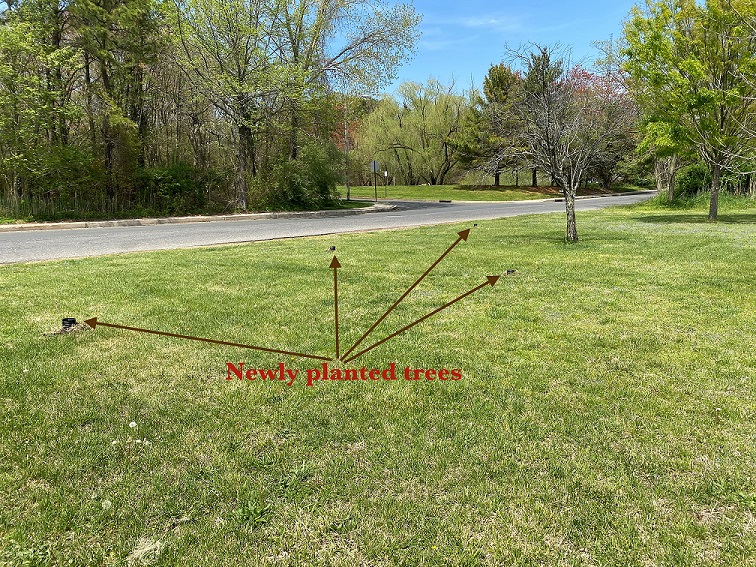
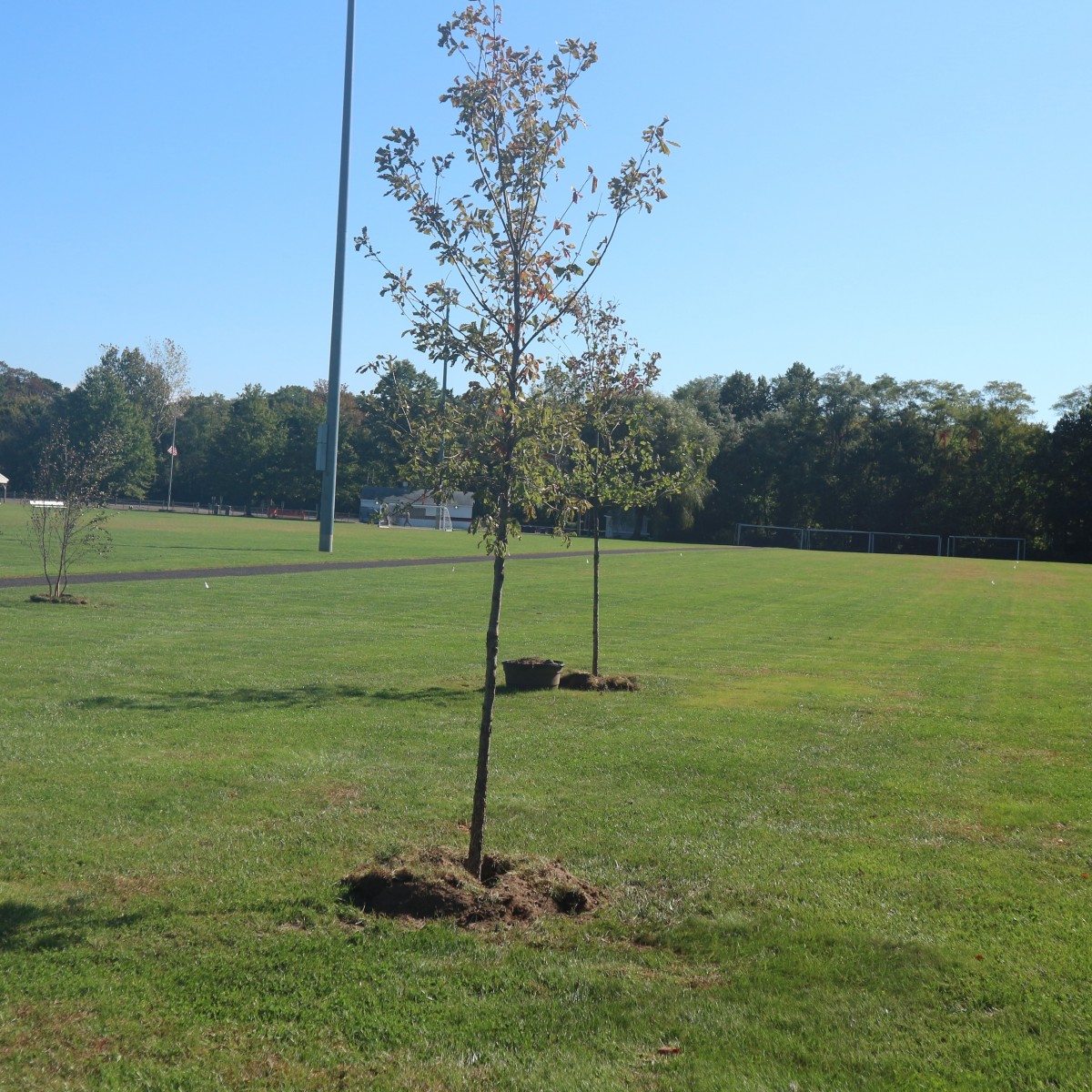
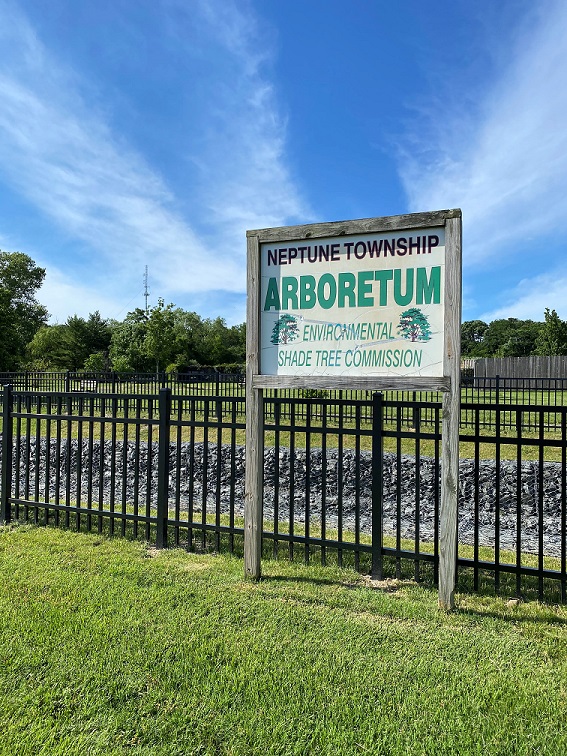
Neptune Township’s Environmental/Shade Tree Commission continues with this stewardship by planting trees on our municipal properties every year.
On October 24, 2020, our volunteer members planted 3 Swamp White Oak Trees and 2 River Birch Trees at Sunshine Park. These trees provide so much to our residents like a nice shade for residents while watching soccer games, adding beauty to the landscape, and colorful foliage in the fall.
According to the Arbor Day Foundation, trees are important for suburban environments for numerous reasons:
- absorbing excess carbon dioxide and providing oxygen in exchange,
- helps with drainage,
- providing nesting areas for local birds, and
- planting trees on your property can reduce energy bills.
Another benefit of planting trees is creating a sense of community. Shade Tree members volunteer their time and encourage others to plant trees. We would love to see residents at our next annual free bare root tree give-a-way in celebration of Arbor Day 2021. Join us on Saturday, April 24, 2021 at the Township of Neptune Public Library between the hours of 9:00 am and 12:00 pm. Follow us on Neptune Township’s Facebook page for more information as the date approaches.
And remember…the time is NOW!
Resources:
https://www.treeclicks.com/most-inspirational-quotes-about-trees, March 9, 2021.
Benefits of Trees, https://www.arborday.org/trees/index-benefits.cfm?utm_source=Arborday.org&utm_medium=Top_Menu&utm_campaign=Dropdown_Menu&utm_term=Trees&utm_content=Tree_Benefits, March 9, 2021.
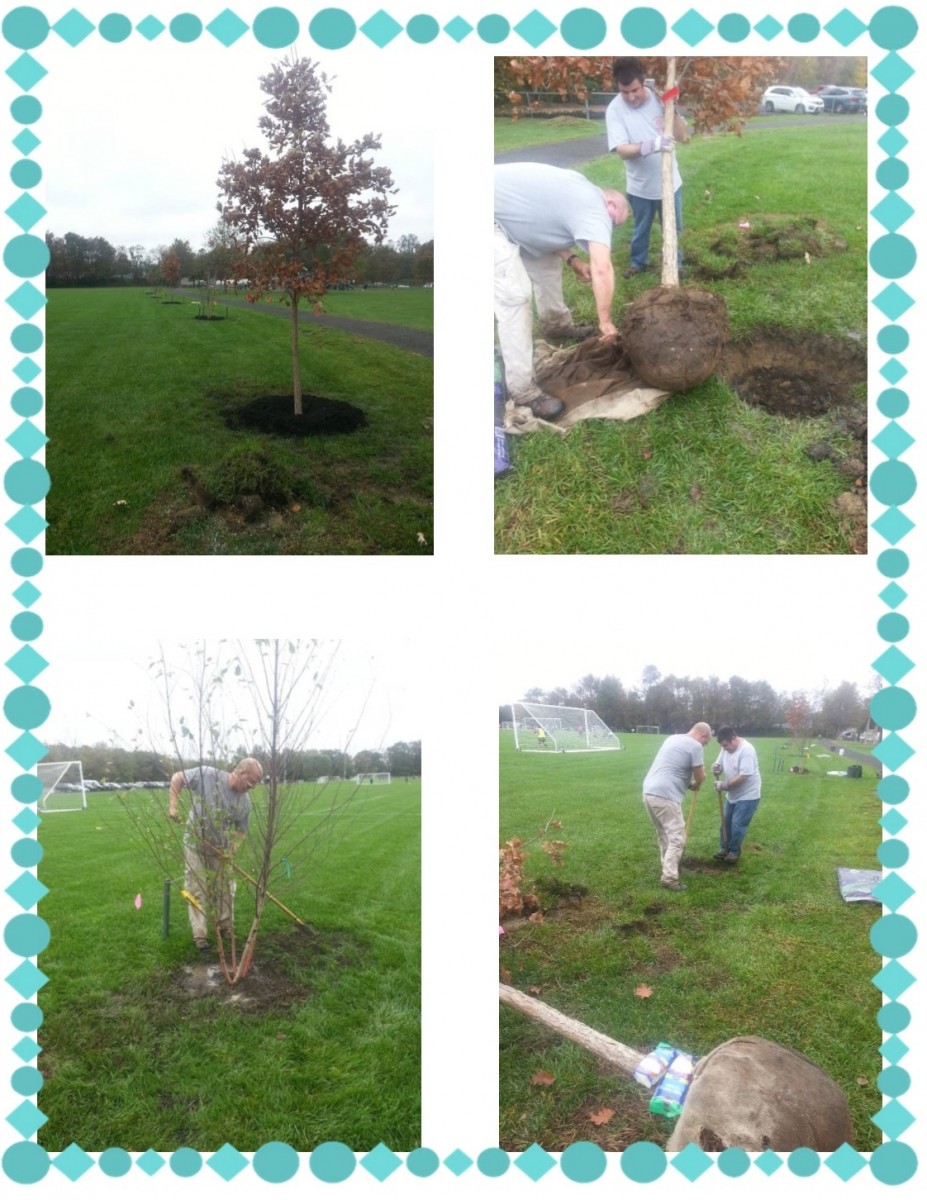
NJ Forestry Service
Tree Seedlings Ordering Information
Please CLICK HERE for more information
Sharing from Rutgers University …
Earth Day at Home webinar series

In celebration of the 50th anniversary of Earth Day, Rutgers Cooperative Extension announces its webinar series “Earth Day at Home”. This series will focus on steps everyone can take to protect the environment. We can all do our part to take actions that make our homes more sustainable, from environmentally friendly lawn care, to composting, to reducing plastic waste. These actions, more than ever, start at home.
Details: Join us on Mondays, starting April 20th, at 6:30pm to learn from experts at Rutgers Cooperative Extension. These live, interactive sessions will be 1 hour. To join in you need either a computer, tablet, or smartphone with speakers. Every week we will cover small actions that together reduce negative impacts on the environment.
CLICK HERE for more information and to be re-directed to the Rutgers site.
How to Build a New Style Spotted Lanternfly Circle Trap
Please CLICK HERE for more information
CLICK HERE to see photos from our seedling giveaway this year!
Ocean Grove Community Garden- May 12, 2018
CLICK HERE to view photos from the day!
Click here for infomation on how to prune trees.
In 2017, the Environmental and Shade Tree Commission gave away free seedlings to residents of Neptune.
Click on the photo below for photos from the day!
Emerald Ash Borer
The emerald ash borer (Agrilus planipennis) is a destructive wood-boring pest of ash trees (Fraxinus spp.). Native to China, Mongolia, North Korea, South Korea, Japan, Taiwan, and the Russian Far East, the emerald ash borer beetle (EAB) was unknown in North America until its discovery in southeast Michigan in 2002. Today, EAB infestations have been detected in 25 states; Arkansas, Colorado, Connecticut, Georgia, Illinois, Indiana, Iowa, Kansas, Kentucky, Louisiana, Maryland, Massachusetts, Michigan, Minnesota, Missouri, New Hampshire, NewJersey, New York, North Carolina, Ohio, Pennsylvania, Tennessee, Virginia, West Virginia, and Wisconsin.
APHIS works with State cooperators to detect, control and prevent the human-assisted spread of the pest in order to safeguard America’s ash trees. Strategies to manage the pest focus on biological control, survey, regulatory activities, combined with public outreach and education initiatives to promote program support and compliance. APHIS continues work to identify effective tools to manage and control EAB populations.
Click Here to view entire article.
Click here for TREE REMOVAL FORM
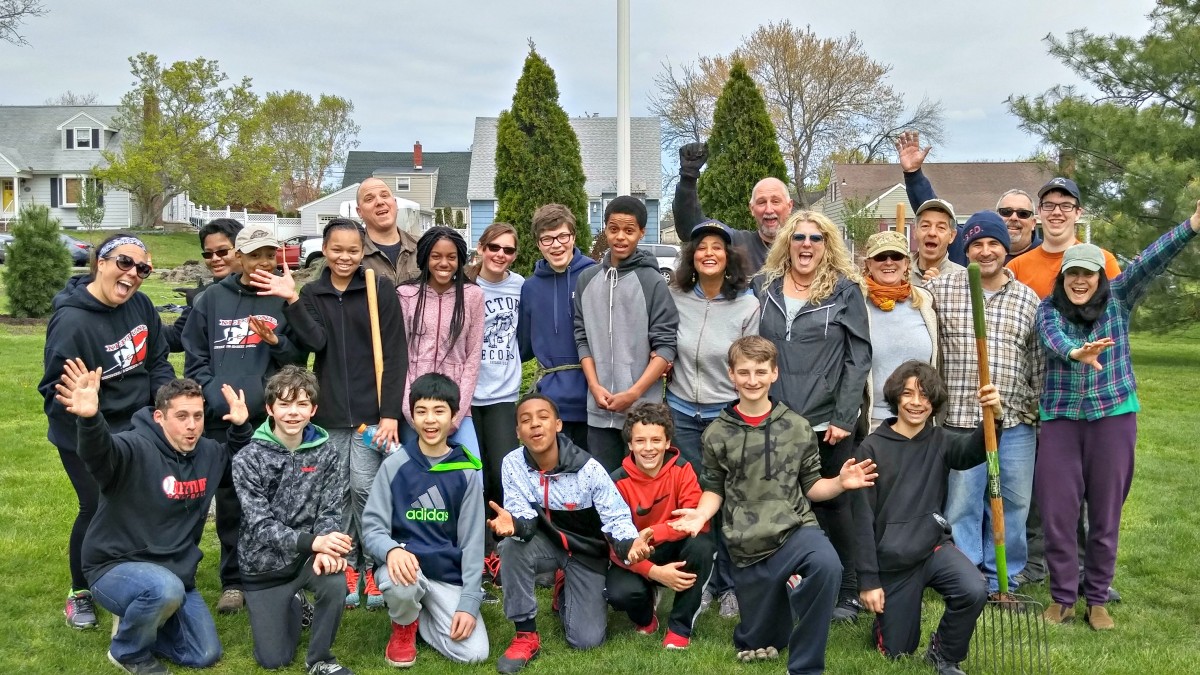
The Neptune Environmental/ Shade Tree Commission would like to thank all the volunteers who came out to support our Arbor Day Planting at Gables Park on Route 33, we could not have made this happen without you!
We also want to thank the Committee, Township employees and Public Works and for their continued support in our planting projects throughout the Township.
CLICK HERE FOR MORE PHOTOS
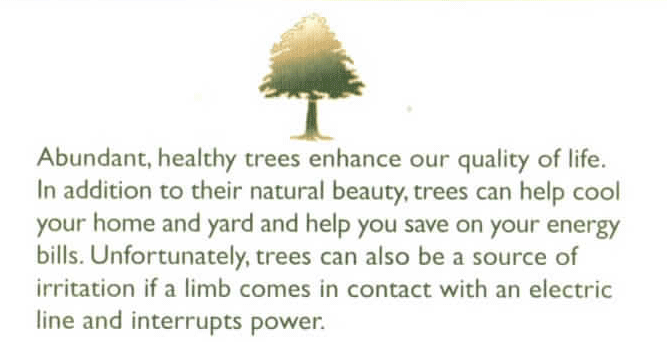
If you are planting near power lines, be mindful of tree and shrub growth potentials.
Please use the link below as a guideline.
Native plants have evolved over thousands of years to adapt to conditions in a particular region. Natives thrive in our local climate and soil and have natural defenses to plant diseases, harmful insects, and other pests. Well-adapted to local conditions, natives require less water and fertilizer than non-natives. They bring in birds and butterflies. Natives provide essential food, shelter, and nesting sites for native wildlife. Native plant roots hold soil in place, increase infiltration of rainwater into the ground, and filter pollutants from our water. Use the links above and below to find out more information on adding them to your yard too.

JerseyYards.org was developed by the Barnegat Bay Partnership with a grant from the New Jersey Department of Environmental Protection.
Thank you to those who volunteered to work on the Jumping Brook Rain Gardens on Saturday, November 7th.
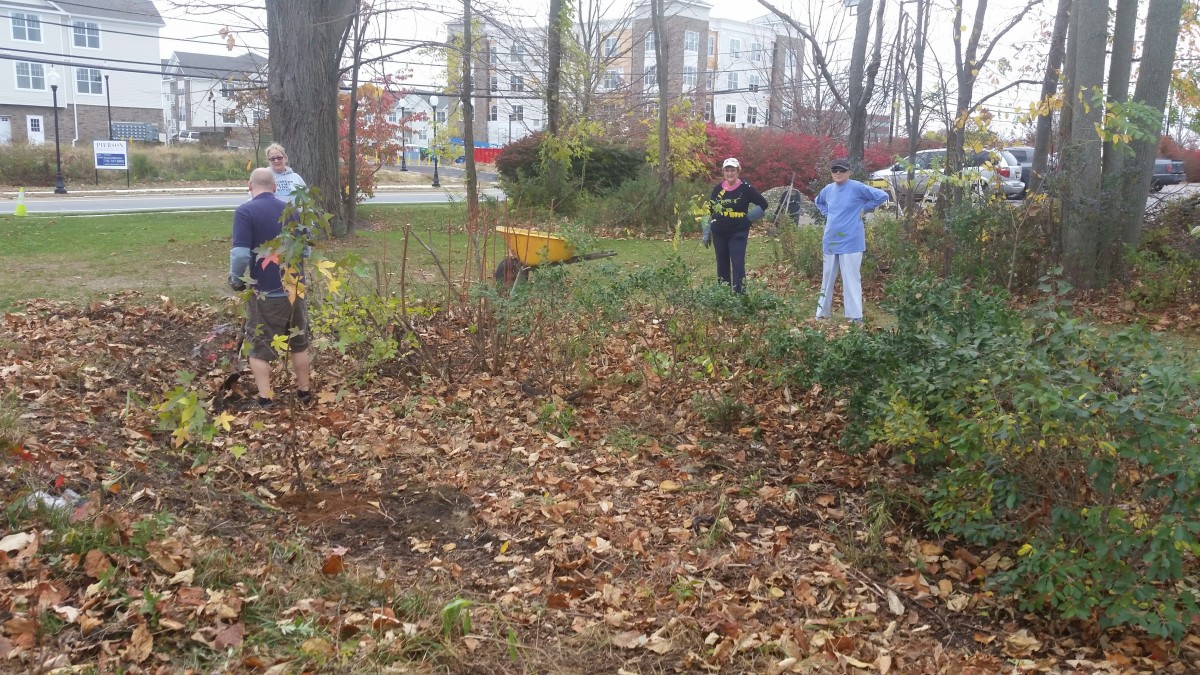 |
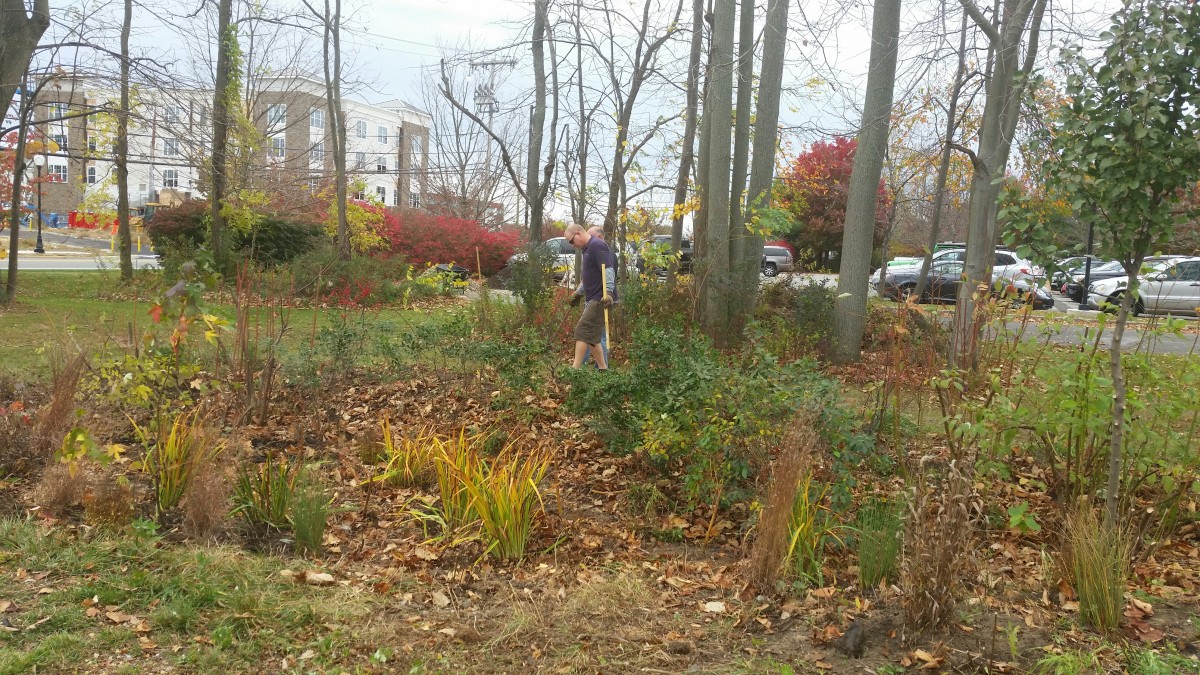 |
| Volunteers help clean and restore the rain gardens | |
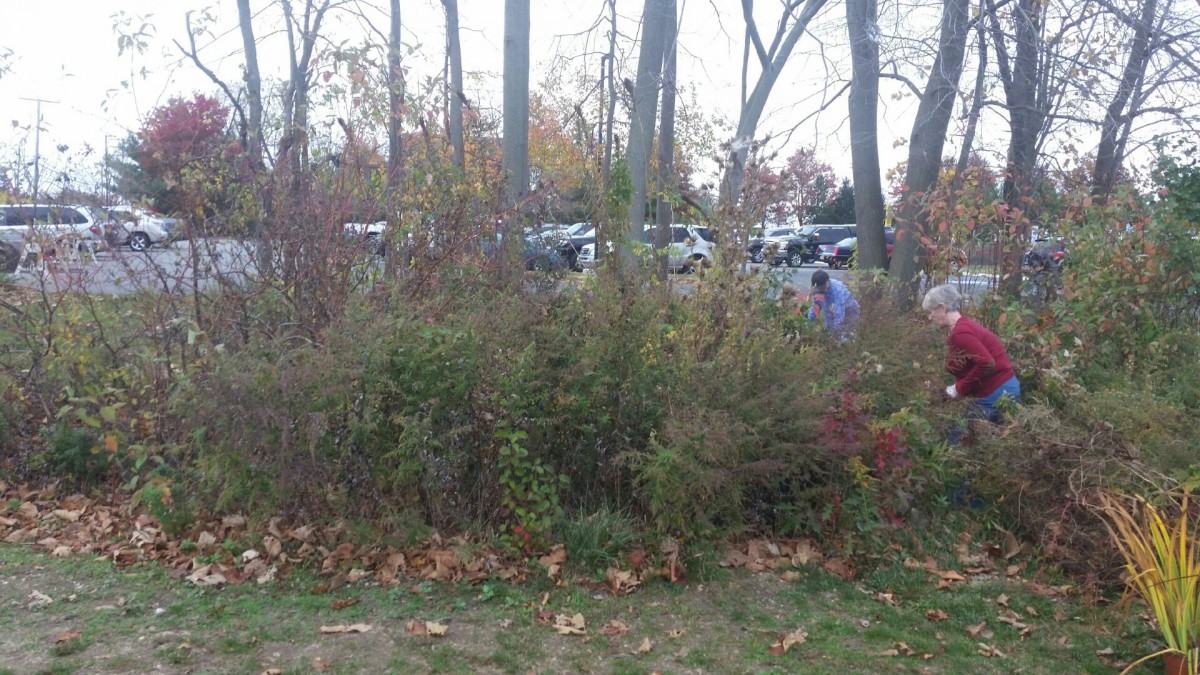 |
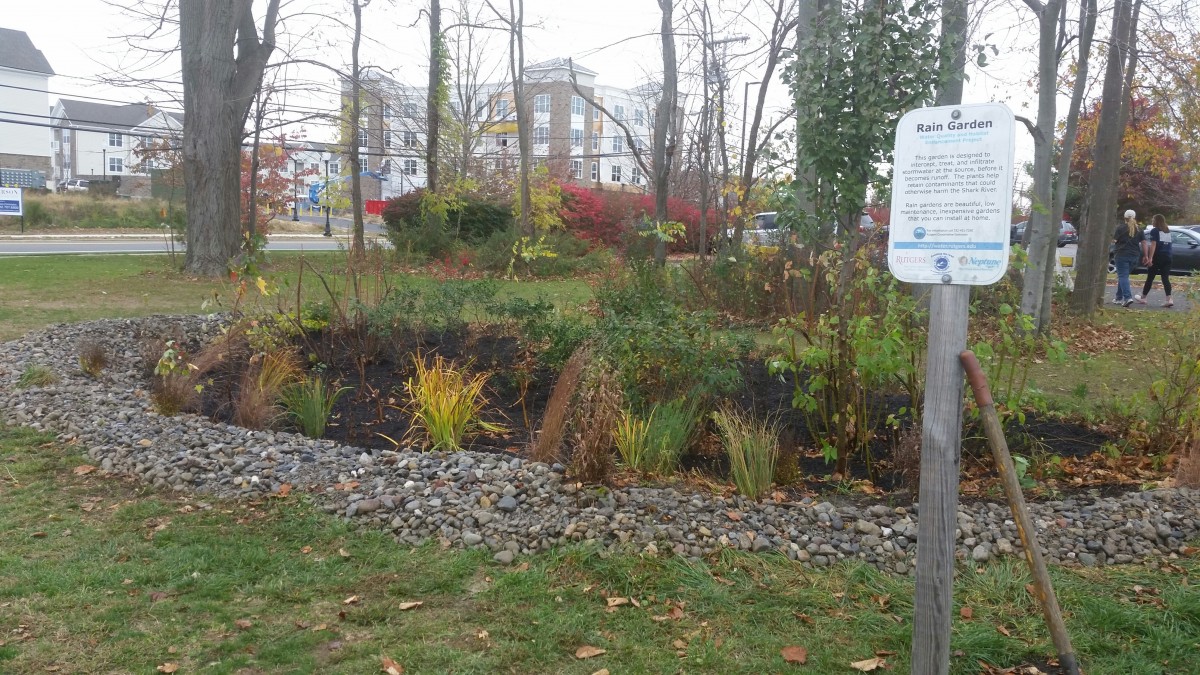 |
| Rain Garden Before | Rain Garden After |
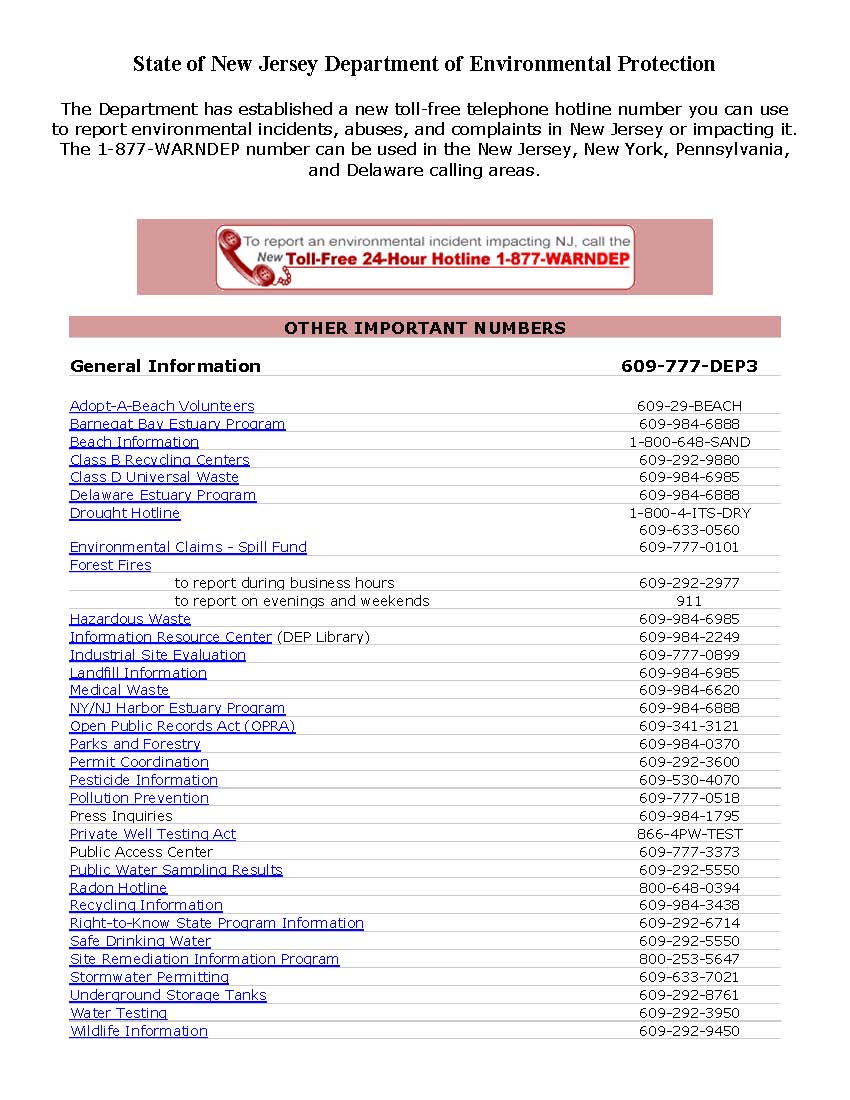
BE A GOOD NEiGHBOR: Don’t plant evasive tree species
CLICK HERE for link to National Invasive Species Information Center

